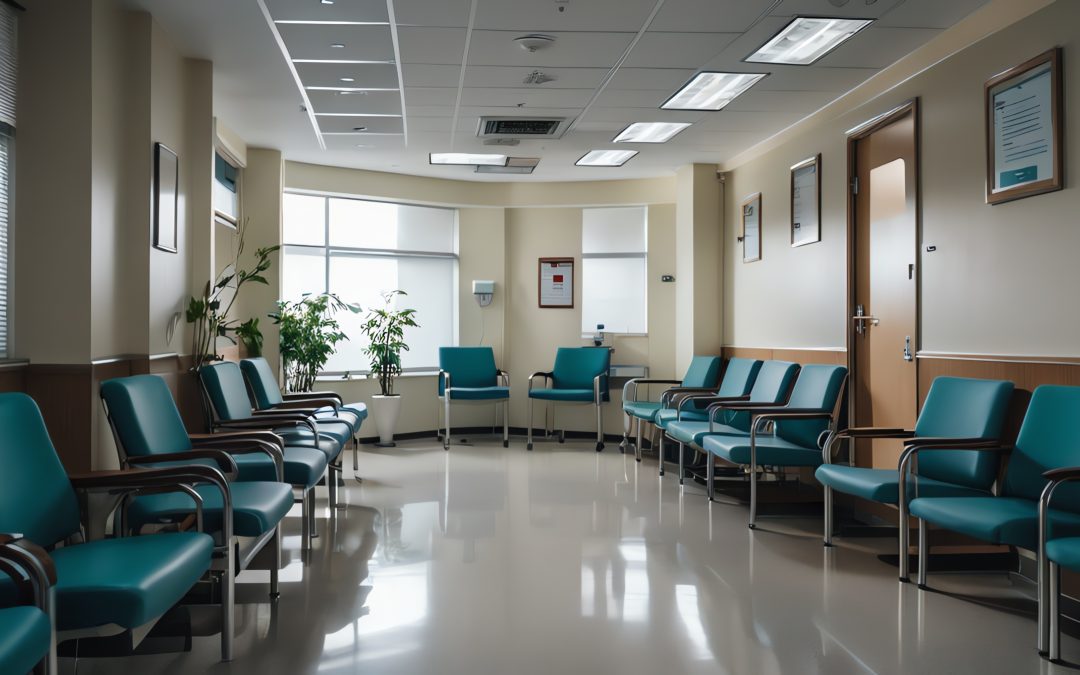Doctor vs Urgent Care: Which One Do You Need?
When you’re feeling unwell or have an injury, it can be confusing to decide between visiting your primary care doctor or an urgent care center. The question often boils down to “Doctor vs Urgent Care”: is it better to see a doctor who knows your health history, or should you head to a walk-in clinic for quick, immediate care?
This guide will help you understand the differences between the two, what services each provides, and how to make the best choice for your health needs.
Table of Contents
Doctor vs Urgent Care: Which One Do You Need?
- What Are Primary Care Doctors
- What is Urgent Care
- When to Visit a Primary Care Doctor
- When to Visit an Urgent Care Center
- Which Is More Affordable?
- What to Expect
- Common Scenarios: Doctor vs Urgent Care
- Final Words
- FAQs
What Are Primary Care Doctors?
Primary care doctors offer comprehensive, long-term care, including preventive health screenings, management of chronic conditions, and routine check-ups. They are typically the first point of contact for your medical care, helping you navigate the healthcare system and coordinating your care with specialists when necessary.
One of the main benefits of having a primary care doctor is continuity of care. They maintain a record of your medical history, which helps in providing personalized care and monitoring ongoing health issues. This long-term relationship allows for better management of chronic conditions and preventive care tailored to your specific needs.
What is Urgent Care?
Urgent care centers provide prompt treatment for non-life-threatening conditions that require immediate attention, such as minor injuries and sudden illnesses. They are an excellent option for situations that can’t wait for a regular doctor’s appointment but don’t require a trip to the hospital emergency room.
No appointment is needed at urgent care centers, making them a convenient option when your primary care doctor is unavailable. This flexibility is particularly useful during evenings, weekends, and holidays when most doctor’s offices are closed.
When to Visit a Primary Care Doctor
Preventive Care
Regular physical exams, vaccinations, and screenings for chronic diseases are essential components of preventive care. These routine visits help catch potential health issues early, making treatment more effective and less invasive.
Long-term Management
Ongoing treatment and management of chronic conditions like diabetes, hypertension, and asthma are best handled by a primary care doctor who is familiar with your health history. They can adjust treatments as needed and monitor your progress over time.
Personalized Care
Your doctor knows your medical history and can provide tailored advice and treatment plans. This personalized approach ensures that your care is specific to your health needs and circumstances.
Holistic Approach
Primary care doctors can address multiple health concerns in one visit, ensuring comprehensive care. They take into account all aspects of your health, including physical, mental, and emotional well-being, to provide a holistic approach to your healthcare.
When to Visit an Urgent Care Center
Non-Emergency Situations
Conditions like flu symptoms, minor cuts, sprains, ear infections, and mild allergic reactions can be quickly and effectively treated at urgent care centers. These facilities are equipped to handle a wide range of minor illnesses and injuries, providing immediate relief without the need for an appointment.
Extended Hours
Urgent care centers are available during evenings, weekends, and holidays when your primary care doctor’s office is closed. This makes them a convenient option for urgent but non-life-threatening medical issues that arise outside of regular office hours.
Lower Costs
Generally, urgent care visits are more affordable than emergency room visits and have shorter wait times. This makes them a cost-effective option for immediate, non-emergency medical care.
Accessibility
The walk-in service without the need for an appointment makes it easier to get immediate care. This is particularly beneficial for those who need quick medical attention but do not require the high level of care provided by an emergency department.
Which Is More Affordable?
Visits to your primary care physician often come with lower copays and covered preventive services, which can include annual physicals, vaccinations, and screenings. Insurance plans typically offer more comprehensive coverage for primary care visits, making them more affordable in the long run.
Generally, urgent care visits have higher copays compared to primary care visits, but they are still much lower than emergency room visits. The costs can vary depending on the services provided, such as X-rays or lab tests.
What to Expect
Primary care offers more comprehensive, long-term care and monitoring. Your primary care doctor provides continuity of care, ensuring that all aspects of your health are considered. This includes preventive care, chronic disease management, and holistic treatment plans tailored to your specific needs.
Urgent care provides efficient, immediate care for acute issues but lacks long-term management. Urgent care centers are designed for quick, on-the-spot treatment of minor illnesses and injuries, making them suitable for immediate needs. However, they do not offer the same level of ongoing care and familiarity with your health history as a primary care physician.
Examples of when to use a Doctor vs an Urgent Care
Scenario 1 – Cold and Flu Symptoms
For preventive measures, ongoing health management, and follow-up care, your primary care doctor is the best option. They can provide comprehensive care by reviewing your health history and ensuring you get the right treatment and preventive advice to avoid future illnesses. Regular check-ups with your primary care physician can help monitor your overall health and manage any chronic conditions that might make you more susceptible to colds and flu.
If you need immediate relief from symptoms and can’t wait for a doctor’s appointment, an urgent care center is ideal. Urgent care clinics are equipped to handle acute illnesses like colds and flu, offering quick treatment to alleviate symptoms. They are particularly useful if you develop symptoms suddenly, such as on weekends or holidays, when your primary care doctor’s office might be closed.
Scenario 2 – Minor Injuries
For follow-up care and managing any long-term effects of minor injuries, your primary care doctor is the go-to professional. They can ensure proper healing and rehabilitation, especially for injuries that might need long-term monitoring, such as sprains or minor fractures. Your primary care physician can also refer you to specialists if more extensive treatment is required.
For immediate treatment of cuts, sprains, and minor fractures, urgent care centers provide a quick and efficient solution. They can handle injuries that need prompt attention but are not severe enough to warrant a visit to the emergency department. Urgent care clinics often have the necessary equipment, like X-ray machines, to diagnose and treat minor injuries on the spot.
Final Words
Choosing between your primary care doctor and an urgent care center depends on the nature and urgency of your health issue.
Primary care is ideal for comprehensive, long-term management and preventive care, while urgent care provides quick, immediate treatment for non-life-threatening conditions when you need prompt attention outside of regular office hours.
Understanding these differences helps you make informed decisions, ensuring you receive the right care at the right time.
FAQs
- Can I use urgent care for routine vaccinations?
No, routine vaccinations should be handled by your primary care doctor who tracks your immunization history.
- What should I do if my primary care doctor is fully booked?
Visit an urgent care center for immediate, non-life-threatening issues without needing an appointment.
- Are urgent care centers open on holidays?
Yes, most urgent care centers are open on weekends and holidays.
- Can urgent care centers prescribe medication?
Yes, they can prescribe medications for various conditions but not for long-term management.
- Should I go to urgent care for chest pain?
No, go to the nearest emergency department or call 911 for chest pain.





